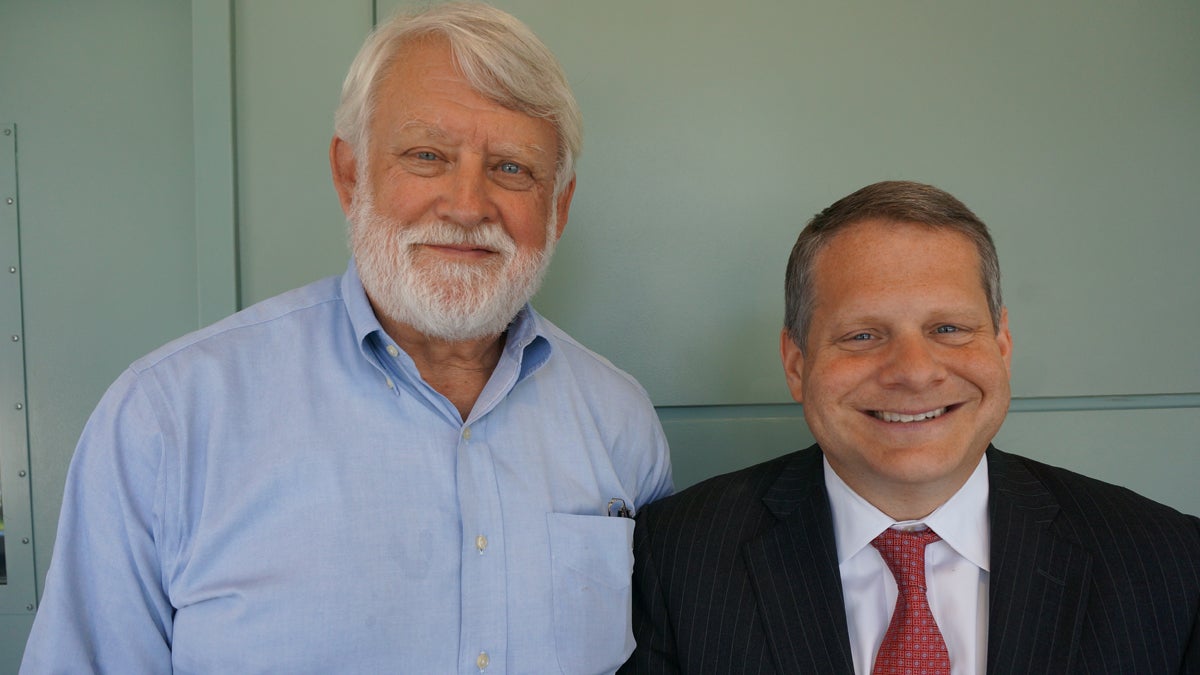As the Franklin Institute changes presidents, a look at how the science museum evolves
Listen
Dennis Wint, outgoing president of the Franklin Institute (left), and Larry Dubinski, incoming president and COO of the Franklin Institute. (Joe Hernandez/WHYY)
The Franklin Institute has long been an iconic Philadelphia institution, known to locals and visitors alike. But today, it’s experiencing a changing of the guard, as president Dennis Wint steps down after 20 years at the helm of the museum.
The Franklin Institute has long been an iconic Philadelphia institution, known to locals and visitors alike. Exhibits such as “Body Worlds” and “King Tut,” as well as the compulsory middle-school class trip have drawn hundreds of thousands of visitors each year.
And many of you will probably have taken a stroll through the Heart.
Today the museum is experiencing a changing of the guard, as president Dennis Wint steps down after 20 years at the helm of the Franklin Institute.
Looking back on his tenure as president, Wint said he felt he had accomplished many of his goals.
“We really rebuilt the Institute from the inside out. We brought in more people. We had more people excited about science and technology,” he said.
A key to reaching museum-goers, he noted, was to start with a subject they are already interested in. For example, Wint attributed the success of the institute’s sports challenge exhibit to the fact that Philly is a big sports town.
“We begin where people are and try to interpret what’s around them in terms of the science and technology that’s occurring,” he said.
His successor, Franklin Institute chief operating officer Larry Dubinski, will inherit the task of making sure the museum remains one of the city’s hallmark learning centers at a time when science and technology fields are rapidly changing.
“I view the institute as a great cultural organization here, a great educational organization in the city, but also an economic development driver,” said Dubinski. “The institute needs to continue to evolve.”
WHYY is your source for fact-based, in-depth journalism and information. As a nonprofit organization, we rely on financial support from readers like you. Please give today.


